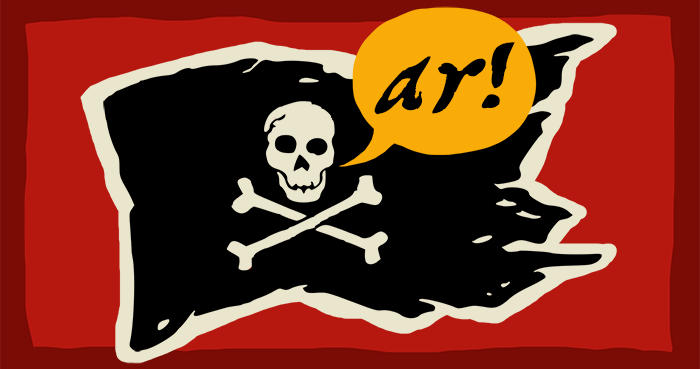
Vowels and the Letter R
With our tools, like Word Mapper and Word List Builder, people frequently ask, "Where's the button for 'ar'?"
Well, we don't have one.
Why?
On this site, we take a speech-to-print approach, first examining the sounds in language and then the spellings used to represent those sounds. In places with rhotic R's, like the USA, Canada, and Ireland, the spelling 'ar' (like in 'car') is really representing two separate sounds. Rhoticity in English is much, much more common than non-rhoticity.
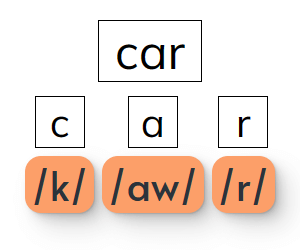
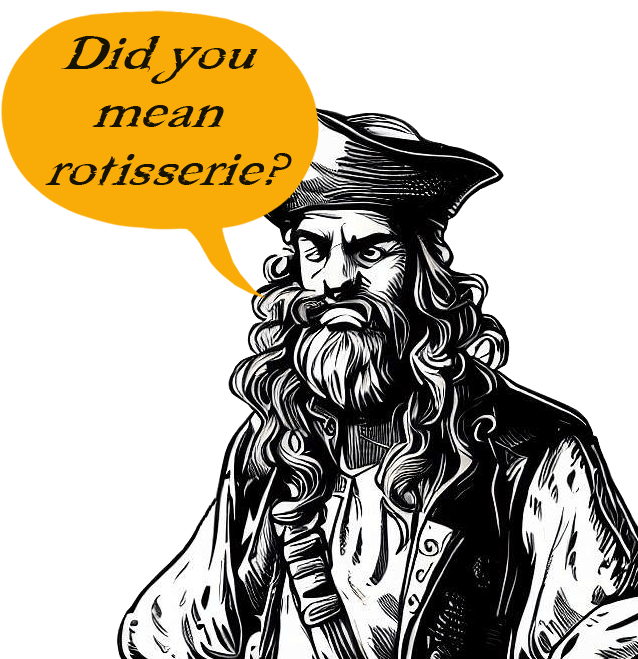
In fact, a lot of what are called 'r-controlled' vowels are combinations of a regular vowel sound, plus the /r/ sound. There's nothing magic going on, just some coarticulation. You can see below that the same vowel spelling and sound can occur whether it's followed by an 'r' or not.
Sound | Spelling | With r | Without r |
|---|---|---|---|
a_e | stare | made | |
ea | bear | steak | |
ai | fair | claim | |
a | Paris | lady | |
e | very | beta | |
ee | cheer | keep | |
e_e | here | these | |
ea | ear | each | |
e | hero | he | |
i | spirit | taxi | |
o | for | both | |
o_e | more | hope | |
oa | board | load | |
oo | floor | brooch | |
a | car | fall |
Since these are the same sounds and spellings, they don't need to be taught twice. If a student already knows that 'ee' is a way to spell the sound /ē/, then they can read words like 'cheer' and 'deer'. We don't need to separately teach /ē-r/ as a sound. It's redundant.
Ergo, /er/ is two sounds?
However, there is one vowel sound that's written with an 'r' that is its own unique single sound. It can be spelled lots of different ways. These spellings are all vowel digraphs and trigraphs, so each one represents a single sound.
Sound | Spelling | Example |
|---|---|---|
er | her | |
ir | bird | |
ur | turn | |
or | work | |
ar | dollar | |
ure | sure | |
re | acre | |
ear | pearl | |
ere | were | |
urr | curry | |
our | journal | |
err | terrain | |
irr | squirrel | |
orr | worry | |
yr | syrup | |
ro | iron |
Schwhat did you say?
The /er/ sound is sometimes inaccurately referred to as schwa + r. However, a schwa is an unstressed vowel that sounds like /ŭ/, /ĭ/, or /ĕ/, while /er/ is a single sound that is spelled with a digraph or trigraph. There are words that have a schwa followed by an 'r' (see below), and in these cases we should teach students that the sounds are separate.
| Actual schwa + r examples | |
|---|---|
| around | |
| separate | |
| career | |
| original | |
| Colorado | |
| Korea | |
But what about 'ar' and 'or' spellings?
Let's take a moment to examine the issue from a print-to-speech direction. We'll
start with the spelling 'ar' and then see the different sounds it could represent.
About half the time it represents the sounds /aw/ and /r/.

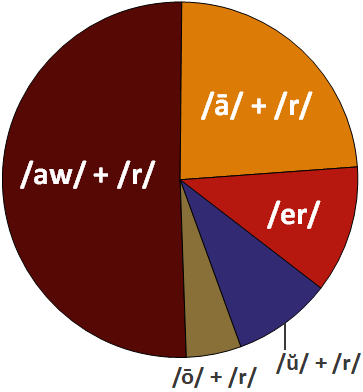
| Sounds | Example | Occurrence |
|---|---|---|
| + | start | 50.7% |
| + | library | 23.7% |
| dollar | 11.6% | |
| + | arrange | 9.0% |
| + | war | 5.0% |
The spelling 'or' doesn't have as much variety as 'ar', but still only represents /ō-r/ about 60% of the time. For the other 38%, it represents /er/; the last few percent are edge cases, but they include some suprisingly common words.

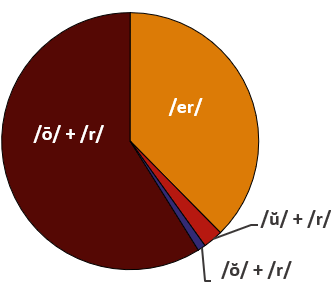
| Sounds | Example | Occurrence |
|---|---|---|
| + | floral | 58.9% |
| work | 37.6% | |
| + | correct | 2.5% |
| + | tomorrow | 1.0% |
And the rest of the spellings?
The spellings for 'ir', 'ur', and 'er' are much more consistent in representing the sound /er/. However, even these sometimes represent two separate sounds.
For ir:
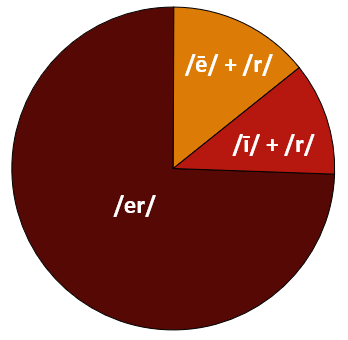
| Sounds | Example | Occurrence |
|---|---|---|
| girl | 74.5% | |
| + | miracle | 14.2% |
| + | virus | 11.3% |
For ur:
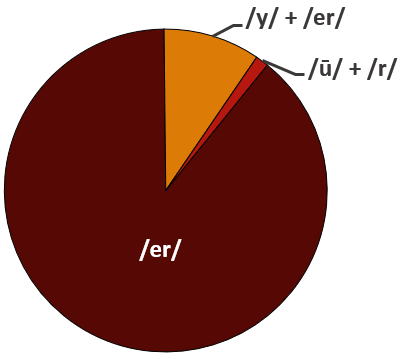
| Sounds | Example | Occurrence |
|---|---|---|
| turn | 89.0% | |
| + | curious | 9.7% |
| + | guru | 1.3% |
For er:
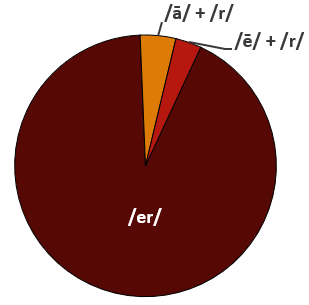
| Sounds | Example | Occurrence |
|---|---|---|
| never | 92.4% | |
| + | errand | 4.4% |
| + | hero | 3.2% |
Simpler is Better
We won't pretend this is clear cut. There is a lot of variation in different English accents for vowels + /r/ pronunciations. However, by using the framework of separating vowels and the letter 'r' except for /er/, we believe we have a simpler approach that avoids extra complications from creating a category of r-controlled vowels.
* These percentages are based on the count of phoneme-grapheme correspondences across 25,502 words as of April 2023.